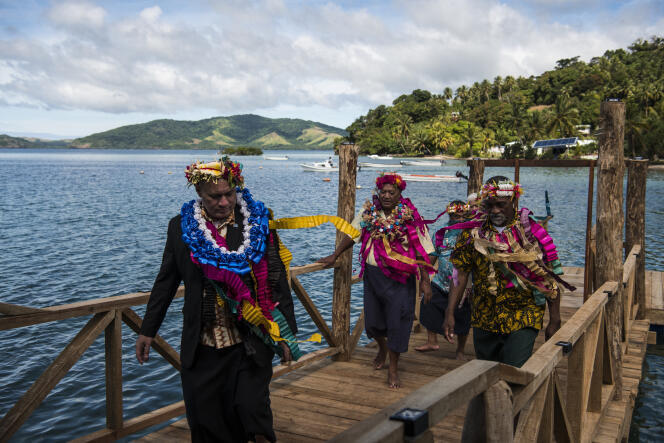


This pact could have been a shining example of neighborliness. On Friday, November 10, Australia and the South Pacific country of Tuvalu unveiled the terms of a historic agreement under which Canberra will offer climate asylum to the 11,000 citizens of the small, sea-level archipelago, which is in danger of being swallowed up by the waves before the end of the century. But the text, which still has to be ratified by both parties before coming into effect, is proving controversial in this part of the world, where the climate crisis represents an existential threat for all low-lying island nations.
The migration aspect of the agreement is not particularly controversial. Under its terms, 280 Tuvaluan citizens will be offered a special visa each year, enabling them to "live, study and work" in Australia, as well as access to "Australian education, health and key income and family support on arrival." This is the response of Anthony Albanese's Labor government to the Polynesian state's request. "We want to negotiate friendship agreements with countries that share our values, such as Fiji, New Zealand and Australia, so that our citizens can live there without giving up their nationality and enjoy the same socio-economic benefits as the rest of the population," Tuvalu's minister of finance, Seve Paeniu, recently explained to Le Monde.
This is the first bilateral agreement that focuses specifically on climate mobility. It was hailed by Tuvalu's prime minister, Kausea Natano, as a "ray of hope" for his country, made up of coral reefs and atolls averaging 2 meters above sea level and already frequently inundated by coastal flooding. "For Tuvaluans, this pact is a bit like an oxygen mask on an airplane. You hope it never comes down, but if you need it, you're very glad it's there," said Jane McAdam, the director of the Andrew & Renata Kaldor Centre for International Refugee Law, who describes the text as "foundational."
The problem lies in the other part of the agreement. After Article 3, devoted to "human mobility with dignity," Article 4 deals with security issues. Australia promises to come to Tuvalu's aid in the event of military aggression, natural disaster or pandemic – but it also gets a say in "any partnership, arrangement or engagement" that Tuvalu might wish to enter into "with any other State or entity on security and defense-related matters." The text continues: "Such matters include but are not limited to defense, policing, border protection, cyber security and critical infrastructure, including ports, telecommunications and energy infrastructure."
You have 50% of this article left to read. The rest is for subscribers only.
